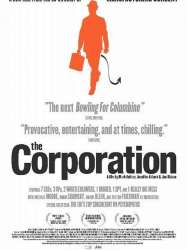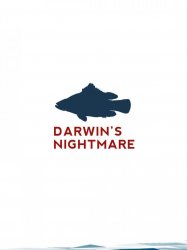Cursed for Gold is a french film of genre Documentary directed by Olivier Weber
Cursed for Gold (2008)

If you like this film, let us know!
Cursed for Gold (French: La Fièvre de l'Or) is a 2008 French documentary film written and directed by the French writer and novelist Olivier Weber, former war correspondent, dealing with the new gold rush destroying the rainforest of Amazonia.
^ http://www.fest21.com/fr/blog/cursed_for_gold/olivier_weber_cursed_for_gold_directors_bio Cursed for Gold Director's bio
Comments
Leave comment :
Suggestions of similar film to Cursed for Gold
There are 2 films with the same director, 8985 with the same cinematographic genres, 2120 films with the same themes (including 0 films with the same 9 themes than Cursed for Gold), to have finally 70 suggestions of similar films.If you liked Cursed for Gold, you will probably like those similar films :

Sur la route du Gange (2003)
, 52minutesDirected by Olivier Weber
Origin France
Genres Documentary
Themes Environmental films, Transport films, Films about the labor movement, Films about automobiles, Documentary films about environmental issues, Documentaire sur le monde du travail, Road movies

L'Opium des talibans (2001)
, 1h32Directed by François Margolin, Olivier Weber
Origin France
Genres Documentary
Themes Films about religion, Films about Islam
 , 1h48
, 1h48Directed by Marie-Monique Robin
Origin France
Genres Documentary
Themes Environmental films, La mondialisation, Films about the labor movement, Documentary films about business, Documentaire sur l'altermondialisme, Documentary films about environmental issues, Documentaire sur le monde du travail
Rating79%





The film reports many controversies surrounding the use and promotion of genetically modified seeds, polychlorinated biphenyls (PCBs), Agent Orange, and bovine growth hormone. Cases in the United States (including Anniston, Alabama), Canada, India, Mexico, Paraguay, the United Kingdom (Scotland) and France, are explored, claiming that the Monsanto corporation's collusion with governments, pressure tactics, suppression and manipulation of scientific data, and extra-legal practices aided the company's attempts at dominating global agriculture. Scientists, representatives of the United States Food and Drug Administration and the United States Environmental Protection Agency, civil society representatives, victims of the company’s activities, lawyers, and politicians are interviewed.

We Feed the World (2005)
, 1h36Directed by Erwin Wagenhofer
Origin Austria
Genres Documentary
Themes Cooking films, Environmental films, La mondialisation, Films about the labor movement, Documentaire sur la cuisine, Documentary films about business, Documentaire sur l'altermondialisme, Documentary films about environmental issues, Documentaire sur la malbouffe, Documentaire sur le monde paysan, Documentary films about health care, Documentaire sur le monde du travail
Rating74%





Avec We Feed the World, le documentariste Erwin Wagenhofer propose aux spectateurs un regard sur l'agriculture mondiale moderne. En passant par la Roumanie, l'Autriche, le Brésil, la France et l'Espagne, son enquête se focalise sur la manière dont est fabriqué ce qui arrive dans notre assiette. Il montre que la domination du Nord sur le Sud est prégnante. Comment est-il possible qu'en Afrique l'on achète des produits européens ou asiatiques comme le poulet thaïlandais ? Le réalisateur présente une face peu connue de la mondialisation : en achetant un poulet industriel, on contribue au défrichement de l'Amazonie car le Brésil déforeste pour cultiver le soja qui sert à nourrir les volailles élevées en batterie (90 % de la production de soja du Brésil est exportée). Le documentaire souligne également la différence entre industrie agroalimentaire et petite exploitation. We Feed the World adopte un style « coup de poing » visant à éveiller les consciences.

The Light Bulb Conspiracy (2010)
, 1h15Genres Documentary
Themes Environmental films, La mondialisation, Films about the labor movement, Documentary films about business, Documentaire sur l'altermondialisme, Documentary films about environmental issues, Documentary films about historical events, Documentary films about technology, Documentaire sur le monde du travail
Actors Casey Neistat
Rating79%





Un historique de cette stratégie commerciale et industrielle visant à limiter la durée de vie de certains produits ou appareils est relaté à travers plusieurs exemples particulièrement significatifs.

Voices of Transition (2012)
, 1h5Origin France
Genres Documentary
Themes Environmental films, La mondialisation, Films about the labor movement, Documentary films about business, Documentary films about environmental issues, Documentary films about technology, Documentaire sur le monde du travail, Disaster films
Rating75%





Using interviews and overlays of graphics and text, the film presents the current problems facing industrial agriculture. It explores why in the interviewees' view the current industrial model is not up to the task of feeding the world's people. According to the film every calorie of energy contained in a food source currently takes between 10 and 20 calories of crude oil in the production of fertilizers and transportation to produce, leading to a strong dependence of the cost of food on oil prices. As a result of peak oil and increasing oil prices this dependence will lead to ever increasing food prices. According to the film, this dependence already represents a significant weak-spot in the global food supply chain. Additionally, agriculture is already responsible for 40% of greenhouse gas emissions, contributing to climate change. Furthermore, the film argues that the overuse of inorganic fertilizers has been responsible for the loss of soil fertility and threatens the complete loss of usable soil within the next decades through soil erosion and sinking crop yields. These effects, according to the film, can only be partly mitigated by the increased use of those same fertilizers. The loss of workplaces, the concentration of land in the hands of a few (allegedly a farm closes every 23 minutes in France) as well as the dependence on large corporations are enumerated as side effects of the industrialisation of agriculture since the 1920s. Companies, such as Monsanto and Bayer, control everything from seed stock to fertilizers and the necessary chemical mixes for hybrid plants, thereby controlling the entire supply chain. The film argues that this development was supported through subsidies from the World Bank. Interviews with Vandana Shiva, the founder of the Transition Towns movement Rob Hopkins and various agricultural experts serve to argue this viewpoint. The dependence on crude oil is illustrated through the example of the wholesale food market in Rungis.

Our Daily Bread (2006)
, 1h32Directed by Nikolaus Geyrhalter
Origin Austria
Genres Documentary
Themes Cooking films, Environmental films, La mondialisation, Films about the labor movement, Documentaire sur la cuisine, Documentary films about business, Documentary films about environmental issues, Documentaire sur le monde paysan, Documentaire sur le monde du travail
Rating75%





Le documentaire fournit des images sur le fonctionnement des plus grandes industries agroalimentaires européennes que ce soit dans le domaine de la production des fruits et légumes que dans celle de la viande. Ni musique ni commentaire ne viennent accompagner les séquences filmées. Le décor est constitué de champs, d'usines, d'abattoirs, et le réalisateur utilise de longs plans fixes y compris pour filmer les ouvriers en train de manger.

The Corporation (2003)
, 2h25Directed by Jennifer Abbott, Mark Achbar
Origin Canada
Genres Documentary
Themes Environmental films, Medical-themed films, La mondialisation, Films about the labor movement, Documentary films about business, Documentary films about environmental issues, Documentaire sur une personnalité, Documentary films about politics, Documentary films about health care, Documentaire sur le monde du travail, Films about psychiatry, Films about disabilities, Political films
Actors Michael Moore, Naomi Klein
Rating79%





The documentary shows the development of the contemporary business corporation, from a legal entity that originated as a government-chartered institution meant to affect specific public functions to the rise of the modern commercial institution entitled to most of the legal rights of a person. The documentary concentrates mostly upon North American corporations, especially those in the United States. One theme is its assessment of corporations as persons, as a result of an 1886 case in the United States Supreme Court in which a statement by Chief Justice Morrison R. Waite led to corporations as "persons" having the same rights as human beings, based on the Fourteenth Amendment to the United States Constitution.

Darwin's Nightmare (2005)
, 1h50Origin France
Genres Documentary
Themes Films set in Africa, Films about animals, Cooking films, Environmental films, La mondialisation, Films about the labor movement, Documentaire sur l'altermondialisme, Documentary films about environmental issues, Documentaire sur le monde du travail, Mise en scène d'un poisson
Rating73%





Les rives du plus grand lac tropical du monde, considéré comme le berceau de l'humanité, sont aujourd'hui le théâtre du pire cauchemar de la mondialisation.En Tanzanie, dans les années 60, la Perche du Nil, un prédateur vorace, fut introduite dans le lac Victoria à titre d'expérience scientifique. Depuis, pratiquement toutes les populations de poissons indigènes ont été décimées. De cette catastrophe écologique est née une industrie fructueuse, puisque la chair blanche de l'énorme poisson est exportée avec succès dans tout l'hémisphère nord.Pêcheurs, politiciens, pilotes russes, industriels et commissaires européens y sont les acteurs d'un drame qui dépasse les frontières du pays africain. Dans le ciel, en effet, d'immenses avions-cargos de l'ex-URSS forment un ballet incessant au-dessus du lac, ouvrant ainsi la porte à un tout autre commerce vers le sud : celui des armes.

The Inheritors (2011)
, 1h30Origin Mexique
Genres Documentary
Themes Films about alcoholism, Films about education, Films about children, Environmental films, Films about families, Films about immigration, La mondialisation, Films about the labor movement, La précarité, Documentaire sur l'altermondialisme, Documentary films about environmental issues, Documentaire sur le monde du travail
Rating73%





Dans les campagnes mexicaines, la pauvreté se transmet le plus souvent par héritage. De génération en génération, les jeunes reproduisent les gestes des anciens dans un même combat pour survivre.
 Connection
Connection